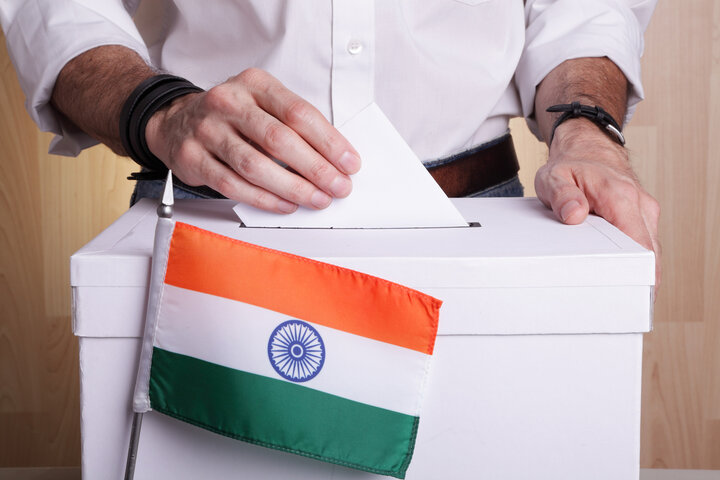Recently, two separate researches have been released on the situation of human rights and the liberal democracy in India, leveling harsh criticisms and concerns about growing autocracy in the former world’s largest democracy.
In its latest report, the V-Dem research institute based in Gothenburg, Sweden finds India to be in the bottom 40-50% of the 179 countries reviewed, and now situated between Niger (better) and Ivory Coast (worse). It calls out the sharp autocratisation in India from 2013, putting it at one of the top ten autocratisers in recent times, with pulling down democracy at levels as it was in 1975. India also accounts for “about half of the population living in autocratising countries.” It notes that India is no longer termed a democracy, but “dropped down to electoral autocracy in 2018” and remains there at the end of 2023.
The report observes that a “wave of autocratisation is observable globally. Autocratisation is ongoing in “42 countries, home to 2.8 billion people, or 35% of the world’s population. India, with 18% of the world’s population, accounts for about half of the population living in autocratising countries.”
The report indicates that the ruling anti-pluralist, Hindu-nationalist Bharatiya Janata Party (BJP) with Prime Minister Modi at the helm has for example used laws on sedition, defamation, and counterterrorism to silence critics. The BJP government undermined the constitution’s commitment to secularism by amending the Unlawful Activities (Prevention) Act (UAPA) in 2019.”
V-Dem report terms India as “one of the worst autocratisers lately”, and in the “top ten autocratisers” in the world. It dropped to an ‘electoral autocracy’ in 2018 and has stayed there in 2023, with worse scores.
Along with the V-Dem report, the current United Nations High Commissioner for Human Rights Volker Türk in his report to the 55th session of the Human Rights Council strongly criticized the human rights situation in India and called the trends in the country concerning. He referred to examples of human rights violations such as increasing the restrictions on civil society, suppressing and targeting independent journalists and human rights advocates, critics of the government and promoting provocative and hateful speeches, discrimination against minorities, especially Muslims, and expressed his concern about the lack of fair and transparent elections in India, ahead of the 2024 India general election scheduled to be held from 19 April 2024 to 1 June 2024.
As criticisms increase about the situation of democracy in India, more than 30 international lawyers have written a petition to the President of India, calling on the Indian President to take a look at the considerations and concerns related to human rights in India, especially the violation of the rights of minorities and ethnic groups living in the country. In the letter, the layers emphasized Muslims and minority ethnic groups living in the southern islands of India have been increasingly discriminated against.
Reacting angrily to the statements of Mr. Turk, the Indian envoy described the raising concerns about his country’s human rights situation as unnecessary and an inverted represnetation of the progress of the world’s largest democracy.
Meanwhile, the leaders of the opposition and secular parties in India have repeatedly criticized the pressure on minorities and perusing hardline Hindutva? policies and have warned against the ruling party’s intention to remove the word secular from the constitution and turn India into a Hindu country. They also have condemned the ruling party’s plan to change Muslim civil laws, demolish mosques and build temples in their place, cancel the autonomous rule of Muslims in Kashmir, ban the activities, or declare illegal the activities of several Islamic organizations in the region, along with weakening key democratic and independent institutions such as the Election Commission.
Moreover, Statista’s Post’s assessment on the World Day Against Cyber Censorship put India in 2023 like the previous year at the top of the list of countries with the most internet outages in the world.
The declining trend of democracy in India comes while the country was considered to be largest democracy in the world, home to people of various religions such as Hinduism, Buddhism, Islam, Sikhism, Jainism, Christianity, etc living together a peaceful life. Today, only after a decade has passed since the right-wing BJP party came to power, India, along with the United States and the United Kingdom, have created more than 80% of Islamophobic texts in the world.
It is no surprise that India abstained from voting on the combating Islamophobia resolution at the UN General Assembly on March 15. The 193-member General Assembly adopted the resolution ‘Measures to combat Islamophobia’, introduced by Pakistan with 115 nations voting in favor, none against and 44 abstentions, including India, Brazil, France, Germany, Italy, Ukraine and the UK.
While BJP has warned against the alleged Hinduphobia in the world, people throughout the world still look up to India because of its great previous figures such as Mahatma Gandhi, Jawaharlal Nehru and Abul Kalam Azad.( Curtsey: Mehr News Agency)


